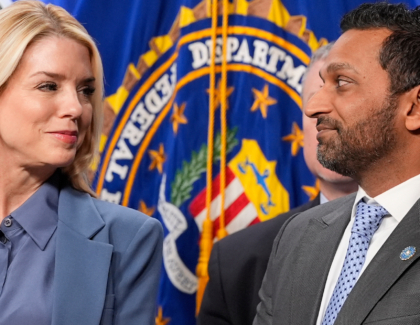Sign up for the daily CJR newsletter.
CJR’s “Launch Pad” feature invites new media publishers to blog about their experiences on the news frontier.
Last Tuesday, I flipped the switch and softly launched my explanatory journalism venture, Newsbound.
I’d spent the previous six months months researching, writing, and expanding my entrepreneurial skill set. I’d talked up my concept to anyone who would listen and attracted a small amount of seed funding in the process.
Now it lives online—in infant form, at least. It has a URL (newsbound.tv). It has a parent company (Newsbound, Inc.). It even has a prototype (Filibustery.com, a website devoted to explaining the growth of Senate obstruction).
This is the first brick. Standing here, a week later, it looks undeniably modest. But damn, it was a heavy one to lift.
So now that I’m in the business of backstory, I should probably give you mine:
During my high school and college years, I didn’t pay much attention to the social sciences, choosing instead to focus on the arts and humanities. It wasn’t until 2003, less than a year after graduation, that I began to feel that creep of political awareness. I was living in Italy at the time and the Iraq War had just begun. At the cafes and bars, the locals bombarded me with questions about the conflict and America’s central role in it. Feeling ill-equipped to talk on the subject, I began scouring the web for information and commentary.
From the cluttered office in the Tuscan villa where I worked, I regularly followed Josh Marshall and Andrew Sullivan and Chris Hayes (on his long-retired blog, The Ground Up), as well as others. Reading them felt like listening to the crisp Italian that surrounded me on a daily basis. While I understood parts of what they wrote, good-sized portions were unintelligible.
But with ample time to spare, I soldiered on. Weeks passed and I subjected myself to more and more bewildering articles and blog posts. Gradually, I began to wrap my head around the vocabulary, the characters, and the underlying dynamics. Once I gained a foothold on that first issue—Iraq—the broader landscape of American politics and governance started to make more sense to me. By the end of that year, I was officially a news junkie.
I moved back to the States shortly thereafter and went on to spend almost six years working in online progressive media, first as a researcher and editor at Media Matters for America and then as the editor-in-chief of Progress Illinois, which I helped launch in early 2008.
During these years, I lived by the hourly news cycle. I found it exhilarating to write so much copy and synthesize so much information at such a rapid pace. But I eventually felt torn between a responsibility to satisfy the “junkies’ and a growing desire to engage the “newcomers.” I could see that those of us in online media weren’t doing enough to assist the latter: the users who are suddenly motivated to learn about a particular story, but feel overwhelmed or intimidated by the fluency (and sheer volume) of up-to-the-minute reporting on the web.
As I talked to more friends and strangers about their interaction with the news, I heard a chorus of frustration. Despite busy lives and countless obligations, many of them still managed to satisfy certain interests: to read books or get to the gym or watch their favorite television series. But following the news often proved unmanageable. They constantly felt underinformed, left behind, out of the loop.
Thanks to the spread of platforms like Twitter and Facebook and Tumblr, broadcasting is easier than ever today. When it comes to learning, however, the barriers to entry are just as high as they were back in 2003, when I struggled to get up to speed on Iraq. Unlike myself at that juncture, most people don’t have the time or energy to struggle through a complex news narrative until, at last, it comes into focus. And an ever-increasing number of Americans are checking the news “from time to time”–rather than at regular intervals–which makes it even harder for them to stay on top of fast-moving stories.
So in 2010 I decided to make the leap. I left my job and shifted my professional focus to meeting the needs of these frustrated users.
As I see it, this mission requires answering the following questions from an editorial and design standpoint:
– How can we provide an effective entry point for someone motivated to learn about a specific news story?
– How can we enable the occasional news consumer to “hold their place” in an ongoing news narrative and later pick up where they left off?
– How can we give users a sense of accomplishment (and the motivation that comes with it) as they follow a particular story?
As you can see at Filibustery, I (among others) am currently focused on the first question. Effective explanation is a crucial piece of the puzzle. But I plan to ultimately tackle the second and third questions as well. In doing so, I hope to develop a different presentation of the news for an underserved type of news consumer.
I’m a one-man band at the moment. And this is a big goal. But the beautiful thing is that it can start so small.
Over the next few weeks, CJR has invited me to drop by the “Launch Pad” to fill you in on my progress and my experiences up to this point. In the next installment, I’ll write about my decision to set up Newsbound as a for-profit, rather than a nonprofit—a choice I didn’t take lightly.
Has America ever needed a media defender more than now? Help us by joining CJR today.






